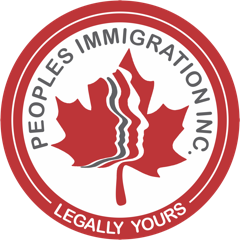- Deemed Rehabilitation: If 10 years have passed by since the crime was committed, an inadmissible individual could be deemed rehabilitated automatically due to the passing of time. Deemed rehabilitation refers to the state where enough time has passed since you were convicted for a criminal charge which allows you to enter the country. You may only be deemed rehabilitated if the crime committed outside Canada has a maximum prison term of less than 10 years if committed in Canada.
- Individual Rehabilitation: Individual rehabilitation refers to the state where the government of Canada believes that you will no longer commit new crimes. At least five years must have passed since the end of your criminal sentence and from the date you committed the act.
Record Suspension:You can apply for a record suspension or a discharge to the Parole Board of Canada. Under their discretion they can either grant pardon to the offence you have committed in Canada, which may make you no longer inadmissible. If you have been granted a record suspension or discharge from any other country, you will have to check if the pardon is valid in Canada. This can be done by visiting your nearest visa office.
Temporary Resident Permit (TRP): You can apply for a temporary resident permit (TRP) if you are inadmissible but you have a valid reason to stay in Canada and if it has been less than five years since the end of your sentence.
There is no guarantee that you will be issued a temporary resident permit. TRP is a temporary waiver of inadmissibility that allows an individual to enter Canada who would otherwise be inadmissible. This is granted for a specific reason and for a specific amount of time, up to a maximum of three years.
Disclosure
- is unlikely to appear for an examination, hearing or removal
- is a danger to the public or
- is inadmissible -that is, not allowed to enter or remain in Canada
The officer is not satisfied that the person:
has established his/her identity
- You have the right to be represented by counsel at your expense or to receive legal aid, if you qualify. You have the right to be informed of the reason for your detention.
- You have the right to contact your embassy or a representative of your country’s consulate at your request.
- If you do not want a consular representative to be contacted, you can ask that the office of the United Nations High Commissioner for Refugees inCanada be informed of your detention.
- If you do not understand or speak the language in which proceedings are conducted, you have the right to be assisted by an interpreter.
- If you are a minor under the age of 18, or in the opinion of the Immigration Division of the Immigration and Refugee Board (IRB), are unable to understand the nature of the proceedings, a designated representative may be appointed to help guide you through the proceedings.
- the person constitutes, in the opinion of the Minister, a danger to the public in Canada or a danger to the security of Canada;
- association with a criminal organization;
- engagement in people smuggling or trafficking in persons;
- a conviction in Canada for a sexual offence or an offence involving violence or weapons;
- a conviction for an offence in Canada under the Controlled Drugs and Substances Act for trafficking, importing and exporting, and production;
- a conviction outside Canada or pending charges outside Canada for a sexual offence or an offence involving violence or weapons;
- a conviction outside Canadaor pending charges outside Canada for trafficking, importing and exporting, and production of controlled substances.
- being a fugitive from justice in a foreign jurisdiction in relation to an offence that, if committed in Canada, would constitute an offence under an Act of Parliament;
- voluntary compliance with any previous departure order;
- voluntary compliance with any previously required appearance at an immigration or criminal proceeding;
- previous compliance with any conditions imposed in respect of entry, release or a stay of removal;
- any previous avoidance of examination or escape from custody, or any previous attempt to do so;
- involvement with a people smuggling or trafficking in persons operation that would likely lead the person to not appear for a measure referred to in paragraph 244(a) of the IRPR or to be vulnerable to being influenced or coerced by an organization involved in such an operation to not appear for such a measure;
- the existence of strong ties to a community in Canada.
Outcomes of a hearing
In making a decision, the officer considers the information provided at the detention review –including your story and Canada’s immigration law.
If the member decides that there is no longer a reason under Canada’s immigration law to keep you in detention the member will order your release. The member may also order you to meet certain conditions, such as checking in regularly at a Canada’s Border Services Agency office for a period of time, or paying a cash bond.
You may ask for leave (or permission) of the Federal Court of Canada for judicial review of the decision.

